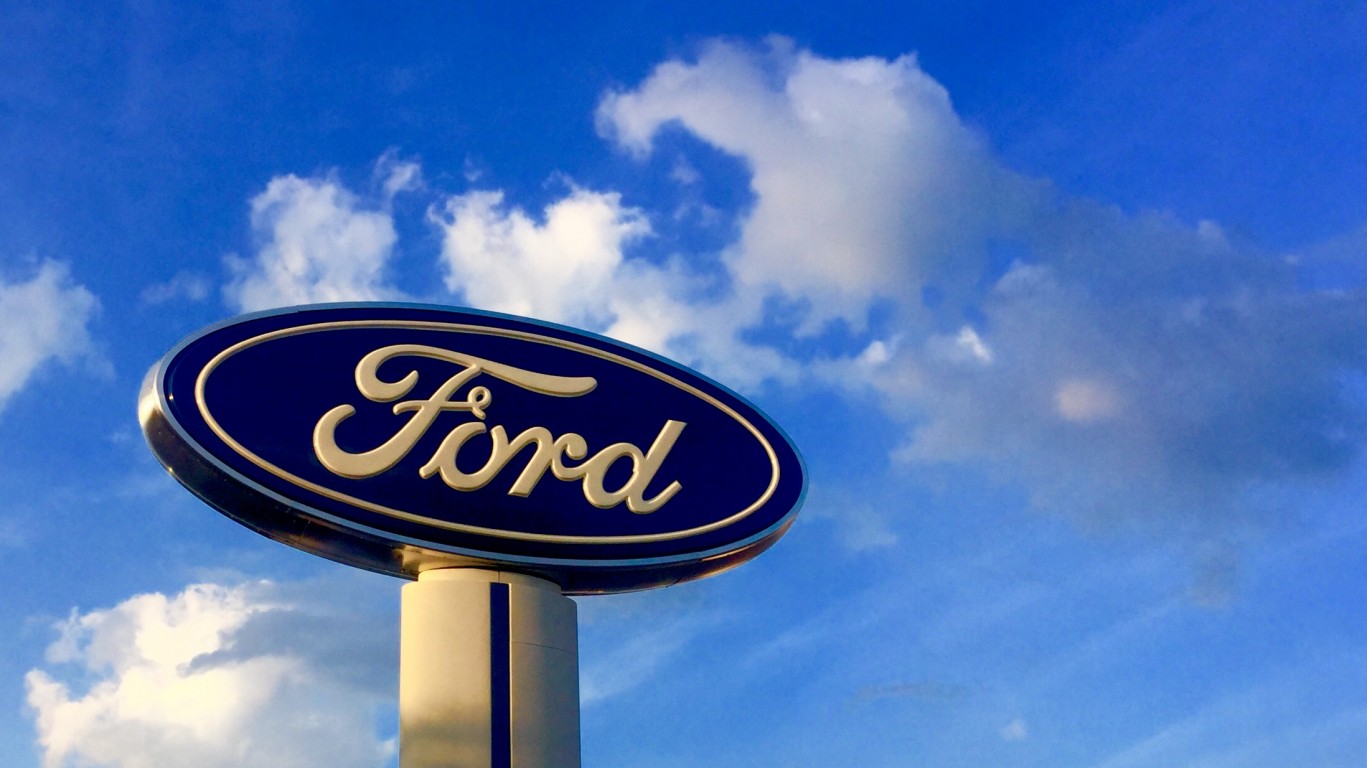Cars and Drivers
Ford, VW: Tying Two Rocks Together Does Not Make Them Float

Published:
Last Updated:

When Ford Motor Co. (NYSE: F) and Volkswagen announced an alliance in January, investors were underwhelmed. Since that announcement, not much has happened. Until Friday morning.
Ford and VW have announced an investment in an autonomous vehicle platform company, Pittsburgh-based Argo AI, that values the small firm at more than $7 billion. In the first quarter of 2017, Ford invested $1 billion in Argo AI and, according to Crunchbase, that is the only capital raise that Argo has completed until now.
VW will invest $2.6 billion in Argo AI, comprising $1 billion in cash and VW’s own autonomous driving company, Autonomous Intelligent Driving, which is valued at $1.6 billion and includes more than 200 employees who have been working on self-driving technology for VW. The German company also will acquire $500 million in Argo AI stock from Ford over the next three years.
For its part, Ford will invest $600 million in Argo AI to complete its $1 billion January investment before selling $500 million worth of the stock to VW. If this is a partnership, VW is the big dog.
This is not what Ford investors wanted most. As we’ve noted before, what Ford investors want from the VW alliance is a merger or partial merger of the two firms. If that can’t or won’t happen, then an agreement that will do something to bolster Ford’s sales in Europe, where the company recently announced 12,000 job cuts and a number of plant closures.
Ford needs help now, not five or 10 years from now when autonomous vehicles are forecast to be everywhere. Of course, the company has to think ahead to that day and do the pick-and-shovel development work now to ensure that it doesn’t get left behind when autonomous vehicles become ubiquitous. And sharing out the development costs with VW is a plus for Ford.
VW, however, is clearly not interested in a closer alliance. VW CEO Herbert Diess said in January that any alliance would not include equity deals between the two companies. The best deal that Ford could get was an investment in future technology. Friday’s announcement drew a line under that: “The alliance, which covers collaborations outside of Volkswagen and Ford’s joint investments in Argo AI, does not entail cross-ownership between the two companies and is independent from the investment into Argo AI.”
One plus for Ford is the agreement to become the first VW partner to gain access to the German firm’s Modular Electric Toolkit (MEB) platform, which the company said would allow it to begin delivering 600,000 new electric vehicles in Europe starting in 2023. Matt DeLorenzo, senior managing editor at Kelley Blue Book, commented on this part of the deal:
As for the EV portion of the agreement, 600,000 small EVs for Europe by Ford based on the MEB platform seems to be a rather ambitious goal. However, the fact that Ford will have access to MEB, which is an architecture that can support both cars and trucks, underscores its commitment to minimize its investments in car platforms and concentrate more on crossovers and trucks with its own resources, along with additional truck EV entries it is able to develop with Rivian.
DeLorenzo is certainly right in the long run, but investors are more likely to focus on the short run. The agreement’s wording does not indicate that Ford’s access to MEB is exclusive. Also, the timeline is way out there. What does the deal do now, for investors?
Ford’s stock traded up about 0.9% in Friday’s premarket, at $10.28 in a 52-week range of $7.41 to $11.05. The 12-month consensus price target on the stock is $10.73. Friday’s announcement is unlikely to move that target any higher.
Retirement can be daunting, but it doesn’t need to be.
Imagine having an expert in your corner to help you with your financial goals. Someone to help you determine if you’re ahead, behind, or right on track. With SmartAsset, that’s not just a dream—it’s reality. This free tool connects you with pre-screened financial advisors who work in your best interests. It’s quick, it’s easy, so take the leap today and start planning smarter!
Don’t waste another minute; get started right here and help your retirement dreams become a retirement reality.
Thank you for reading! Have some feedback for us?
Contact the 24/7 Wall St. editorial team.